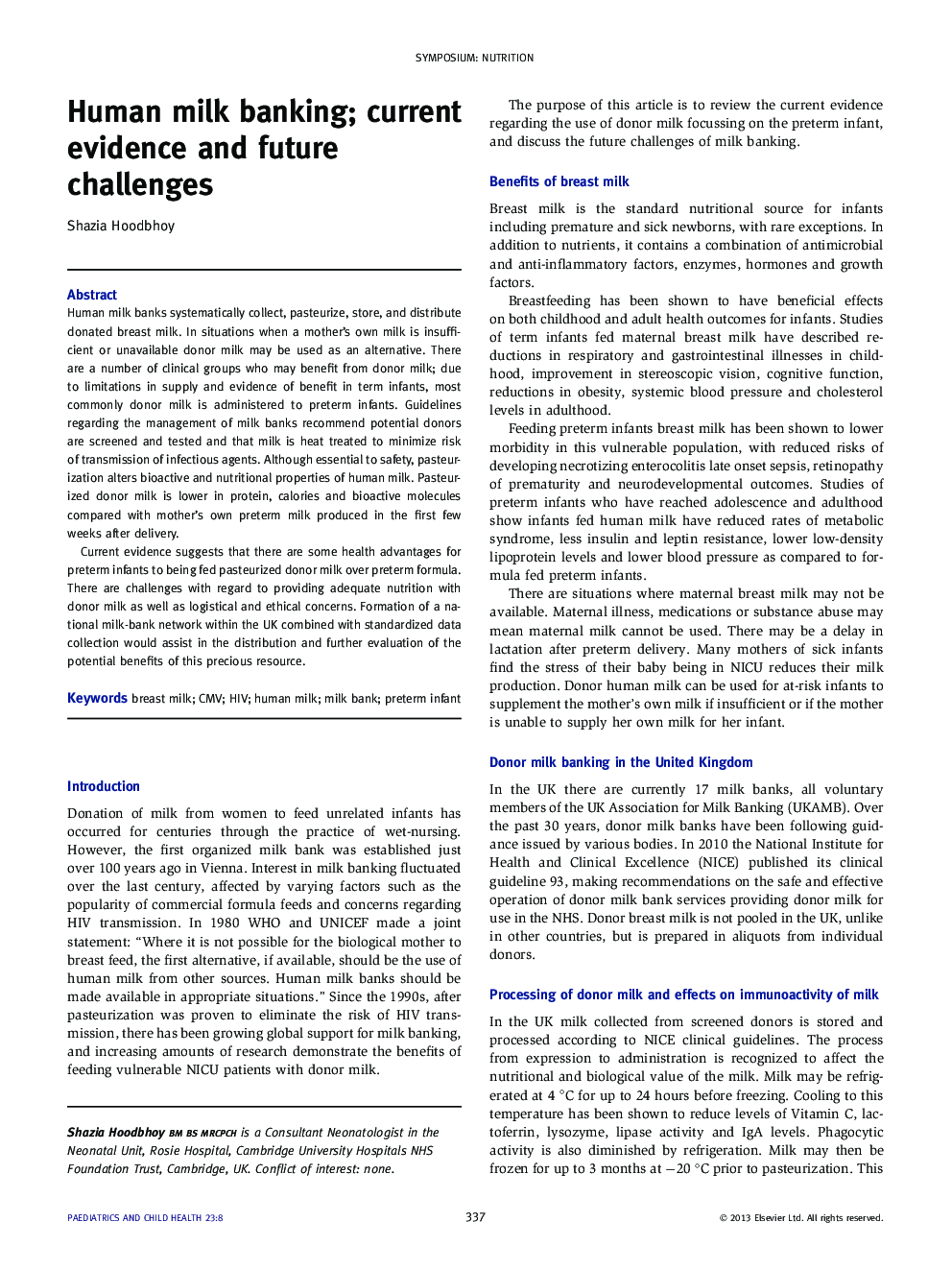| کد مقاله | کد نشریه | سال انتشار | مقاله انگلیسی | نسخه تمام متن |
|---|---|---|---|---|
| 4172402 | 1275745 | 2013 | 5 صفحه PDF | دانلود رایگان |

Human milk banks systematically collect, pasteurize, store, and distribute donated breast milk. In situations when a mother's own milk is insufficient or unavailable donor milk may be used as an alternative. There are a number of clinical groups who may benefit from donor milk; due to limitations in supply and evidence of benefit in term infants, most commonly donor milk is administered to preterm infants. Guidelines regarding the management of milk banks recommend potential donors are screened and tested and that milk is heat treated to minimize risk of transmission of infectious agents. Although essential to safety, pasteurization alters bioactive and nutritional properties of human milk. Pasteurized donor milk is lower in protein, calories and bioactive molecules compared with mother's own preterm milk produced in the first few weeks after delivery.Current evidence suggests that there are some health advantages for preterm infants to being fed pasteurized donor milk over preterm formula. There are challenges with regard to providing adequate nutrition with donor milk as well as logistical and ethical concerns. Formation of a national milk-bank network within the UK combined with standardized data collection would assist in the distribution and further evaluation of the potential benefits of this precious resource.
Journal: Paediatrics and Child Health - Volume 23, Issue 8, August 2013, Pages 337–341